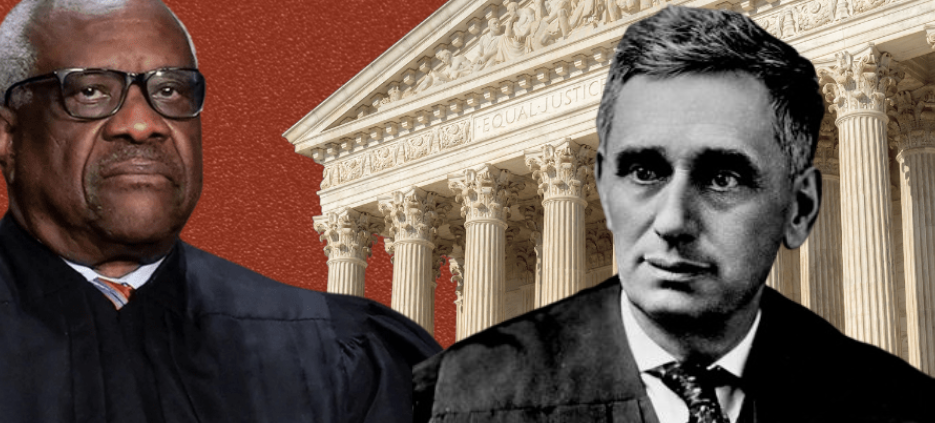Just Justices Shall You Pursue
An ugly and hard-fought battle over an appointment to the Supreme Court rattled the country. The New York Times accused the nominee of being a radical. The nominee’s religion was an additional issue. A close association with the President also made him suspect. The nominee attended the Senate hearings on the nomination. After four months of scrutiny, the Senate confirmed Justice Louis D. Brandeis to the U. S. Supreme Court on June 1, 1916. Brandeis later set a high standard for all future Justices to follow.
Upon retirement, the New York Times hailed Brandeis as one of the finest justices ever to have served. His Jewish identity, close association with Woodrow Wilson, and Zionist politics had little effect on the jurisprudence of the Supreme Court. He offered our nation due justice.
Perhaps Torah inspired Brandeis. In Deuteronomy 16:18, at the beginning of Parshat Shoftim, Torah says to “appoint magistrates and officials for your tribes, in all the settlements that your God is giving you, and they shall govern the people with due justice.” Torah continues to say, “Justice, justice shall you pursue!”
Judges have the power to reshape a nation. Yet, the guidelines governing judicial conduct are hazy. The meaning of due justice is vague. The character of reasonably good jurists is left to our imagination and yearning. I believe that jurists should be honest, above reproach, and able to set aside their political beliefs. The consequences of appointing biased justices or those with conflicting interests weaken the entire justice system for our country or any country. In polarized societies like ours, Judges will be accused of acting for political causes. Just like the United States, Israel is grappling with issues of impartiality in the justice system.
Israel’s judiciary crisis is unique to parliamentary democracies. Adding complexity to the problem is that Israel does not have a constitution. Without a governing document, Israel’s Supreme Court ascribed to themselves the power to review the Knesset’s laws per a standard of “reasonableness.” A right-wing Knesset is subduing a left-leaning judiciary with a new law eliminating the reasonableness standard. As there are only two strong branches of government, the Knesset’s attempt to limit judicial power requires scrutiny. Can elected politicians be trusted to dominate the judicial branch? When questioned, Bibi Netanyahu proclaimed that the crisis in Israel is no more problematic than the situation in the United States.
The United States faces two crises with the Supreme Court. While our Constitution governs the Court, its interpretation is subject to wildly different views; those who envision a living constitution versus those who are originalists. Moreover, the Court has no ethics rules. Its members can accept gifts and associate with political activists. Without ethical rules governing the Court, we rely on our moral sense and love of democracy to shame those justices. The moral purpose of a fair judiciary begins in Deuteronomy, seeking due justice.
Another Jewish justice, Abe Fortas, set a different standard than that of Louis D. Brandeis. In May 1969, Fortas resigned from the Court after a controversy involving his acceptance of $20,000 from financier Louis Wolfson while Wolfson was being investigated for insider trading. Those may have been the good old days of the Supreme Court when even the appearance of impropriety was enough to shake a justice loose from their seat.
At least one current Supreme Court Justice has flaunted the ideal of due justice. Perhaps he should back up his RV to the Supreme Court door, pack up his belongings and head out to see America. In the meantime, the public must continue to remind the Court’s current members to live up to the standards set by Brandeis and Fortas and Torah.
Rabbi Evan J. Krame






 Evan J. Krame was ordained as a rabbi by the
Evan J. Krame was ordained as a rabbi by the